detail profile giuseppe pierozzi
Peran Yang Di Mainkan Giuseppe Pierozzi
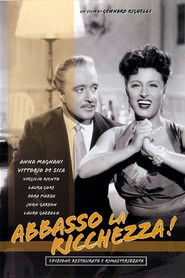 Thanks to wartime smuggling Gioconda Perfetti...
Thanks to wartime smuggling Gioconda Perfetti...Peddlin' in Society 1946
Thanks to wartime smuggling Gioconda Perfetti, a roman fruit vendor, becomes very rich. She leaves her shop and moves to a magnificent villa which once belonged to a count. She also becomes involved with some very dubious characters who profit from her ignorance and cheat her out of her money.
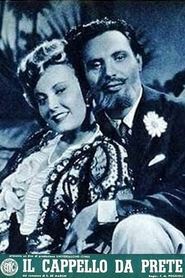 The baron of Santafusca descended from...
The baron of Santafusca descended from...Il cappello da prete 1944
The baron of Santafusca, descended from a noble family, leads a dissipated life. To pay debts he is forced to sell his house. He tries to steal from the house of a very rich priest and, surprised during the theft, he kills the priest, and then throws the body in an abandoned well. He continues his life of revelries and luxury, until the remorse for the crime trigger a process of self-destruction. The nightmares of the baron, tormented by the only evidence left of the murder, the hat of the priest ,drags him into a daring and hallucinated series of ups and downs to the brink of insanity and jail.
 A modest accountant wins a utility...
A modest accountant wins a utility...Pazza di gioia 1940
A modest accountant wins a utility vehicle in a contest and publishes an ad looking for a companion to share expenses on a vacation trip. An attractive young lady answers the ad, but at the meeting place, the girl mistakes the accountant for a millionaire, who of course, leaves with her...
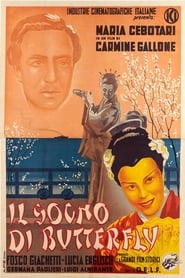 Italian filmmaker Carmine Gallone was still...
Italian filmmaker Carmine Gallone was still...The Dream of Butterfly 1939
Italian filmmaker Carmine Gallone was still in his "operetta" mode when he helmed 1938's Il Sogno di Butterfly (Dream of the Butterfly) Maria Cebotari plays opera diva Rosa Belloni, currently starring in a production of Puccini's Madama Butterfly. The plot thickens when Rosa's backstage life begins to mirror the travails of the character she is portraying. The climax comes when Harry Peters (Fosco Giachetti), the American father of Rosa's illegitimate child, returns after four years with his new wife in tow, leading inexorably to a doleful ending both on- and offstage. Critics complained about the substandard photography in Il Sogno di Butterfly, but this might have been due to poor laboratory work.
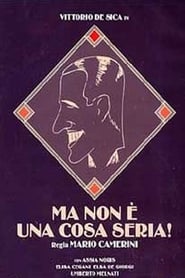 Based on a Pirandello play Vittori...
Based on a Pirandello play Vittori...But It's Nothing Serious 1936
Based on a Pirandello play, Vittori De Sica plays a wealthy young social lion who has to constantly fight off a horde of women who are eager to marry him because of his position and money. He weds Elisa Cegani, a servant girl, who turns out to be a more appealing wife than any of the others could have been. Assis Noris decorates the screen well as one of the chasers and pursuers. In 1937, De Sica and Noris made a film, "II Signor Max," which, other than the setting and character role names, basically has the same plot as this film.
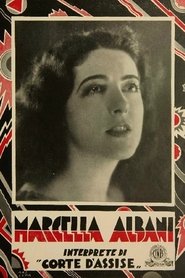 During a reception in a villa...
During a reception in a villa...Before the Jury 1931
During a reception in a villa, wealthy banker Calandri is killed in the park with a gunshot. The gamekeeper Barra is immediately arrested, but he declares himself innocent. During the trial it turns out that the defendant had threatened the victim, guilty of courting his sister-in-law. But the deposition of a journalist present at the party soon leads to discover the existence of a dense network of equivocal relations between the victim, the guests and the servants. This judicial setting drama is allegedly the second Italian sound film after "The Song of Love", made using the RCA Photophone recording technique, and is also considered to be the first Italian detective film, a precursor to the later genre of Giallo films.

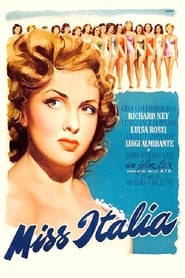 Journalist decides to report on Miss...
Journalist decides to report on Miss...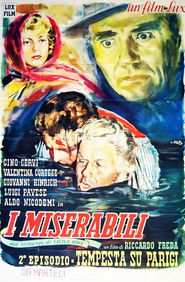 The story of Jean Valjean still...
The story of Jean Valjean still...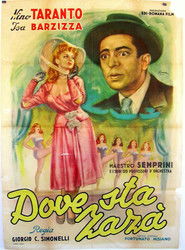 The film is set in Naples...
The film is set in Naples...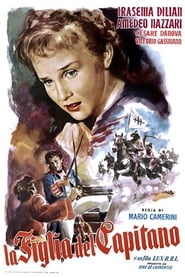 A peasant leader under the enlightened...
A peasant leader under the enlightened...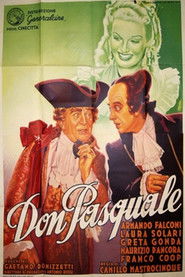 In the eighteenthcentury Rome Don Pasquale...
In the eighteenthcentury Rome Don Pasquale...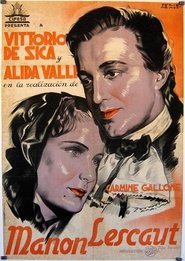 Manon escapes with the young nobleman...
Manon escapes with the young nobleman...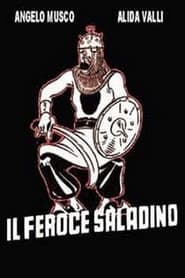
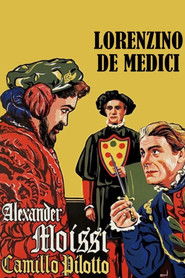 Lorenzino de Medici manipulates Alessandro ruler...
Lorenzino de Medici manipulates Alessandro ruler... A comedy about a hobo and...
A comedy about a hobo and...